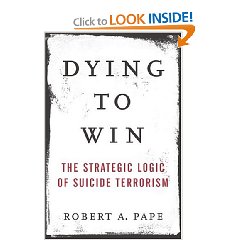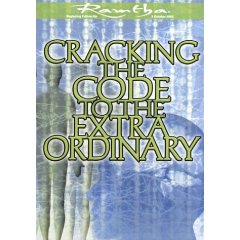Ralph Peters is more compelling than Tom Friedman, goes deeper than Robert Kaplan, runs the numbers as well as Clyde Prestowitz, and runs as many risks as Robert Young Pelton. All of these men are among the best and the brightest of our generation. Ralph Peters is first among these equals.
New Glory is most devastating in its professional appreciation of the crash of Islamic civilization and the hollowness of Europe, with Germany and France coming in for special scorn. While Peters is acutely sensitive to the mistakes that France and Germany have made with immigration–allowing millions to immigrate without enfranchising them or assuring their loyalty as citizens–he tends to overlook the same faults in the US and the UK, and this is my only criticism: patriot that he is, he tends to downplay US errors and misbehavior. Having said that, I would also say there is no finer observer of reality outside the US than Ralph Peters.
Like his earlier book, Beyond Terror, Peters again excels with gifted turns of phrase that sound like pure poetry. Peters is not just a grand strategist equal to the likes of Scowcroft or Brzezinski (while less diplomatic than they), he is a gifted orator and his book reads as if one were in the Greek Senate listening to Socrates hold forth.
Especially strong in this book is the author's focus on Africa and Latin America as area rich with potential that the Americans are ignoring. Instead of obsessing on assassinating Chavez, as moronic an idea as there ever was, we should be focusing on how to include Africa and Latin America in our free trade zone, along with India and Japan.
Peters jumps into the intellectual stratosphere when he takes on the issue of bad borders, the cancerous heritage of colonialism. I would recommend that the book by Philip Allott, “Health of Nations,” and also the book by Jed Babbin, “Inside the Asylum” (on the UN) be read along with this book. I would add Mark Palmer's book on “The Real Axis of Evil” as well, about the 44 dictators we support. Taken together, perhaps adding Joe Nye's book on “Understanding International Conflicts” to have a really fine grasp of current challenges.
Peters, author of a novel about treasonous defense contractors, comes out in the open with his sharp criticism of the military-industrial complex, pointing out that they are among the worst enemies of our national defense. Their corruption, legalized by a Congress all too eager to take its standard 2.5% to 5% “cut” on delivered pork, diverts tens of billions of dollars from education, infrastructure, border control, public health, and other sources of national power. When added to light-weight decision-making at the very top, where we go to war and waste thousands of lives and over $187 billion dollars on a war that was both unnecessary and pathologically in favor of Iranian ambitions against Iraq, one can quickly see that General Eisenhower and General Smedley Butler (“war is a Racket”) were both correct–we are our own worst enemy. Peters concludes his real-world damnation of contractors by summing up the many problems that occurred in Iraq when contractors failed to deliver to US troops the ammunition, food, and water, as they were contracted to do. I myself heard of units that lost 30 to 40 pounds per man after months on a diet of water and *one* Meal Ready to Eat (MRE) per day.
Peters draws his book to a close with compelling thoughts down two distinct lines. First, he clearly favors a policy of carefully identifying and then killing those who will not heed any other means of peaceful coexistence. As with the author of “Civilization and It's Enemies,” he reminds us that liberty comes at the price of regular shedding of blood. It is not free.
Peters' second line is the most interesting to me. He is scathingly on target when he labels US intelligence professionals to be uniformly timid and bureaucratic in nature, part of the problem, not part of the solution. He goes on to dissect how we fail to listen to foreign cultures, and fail to understand what is in the minds of the very people we are trying to reach. Finally, he concludes that education, not guns, are the heart of power. Consistent with the findings of the Defense Science Board in their reports on “Strategic Communication” (July 2004) and “Transition to and From Hostilities” (December 2004), Peters recognizes that open source information in all languages must be gathered, read, understood, analyzed, and acted upon, before we can possible communicate any message to anyone. He would agree with those who say “forget about the message, deliver the tools for truth–the Internet, education, translation software, information sharing devices–and get out of the way: the people will educate themselves, and in educating themselves, will be inoculated against terrorism.”
In passing, Peters points out that the US Navy and US Air Force have largely fallen into irrelevance because of their obsession with big expensive systems that are useless most of the time, and he notes that a larger Army, and a sustained Marine Corps, remain the true core of American national power.
This book is a “tour d'force” to use a term of phrase in a language Peters churlishly suggests is used only by waiters and dictators. I myself find much that is good in France and Germany and the UK, but overall, I agree with Peters when he says that Europe is a failing civilization, following Islam into chaos, and that Africa, Latin America, and South Asia (Indian Ocean) are the future. Interestingly, Peters sees no conflict with China brewing–they are too dependent on US consumption.









